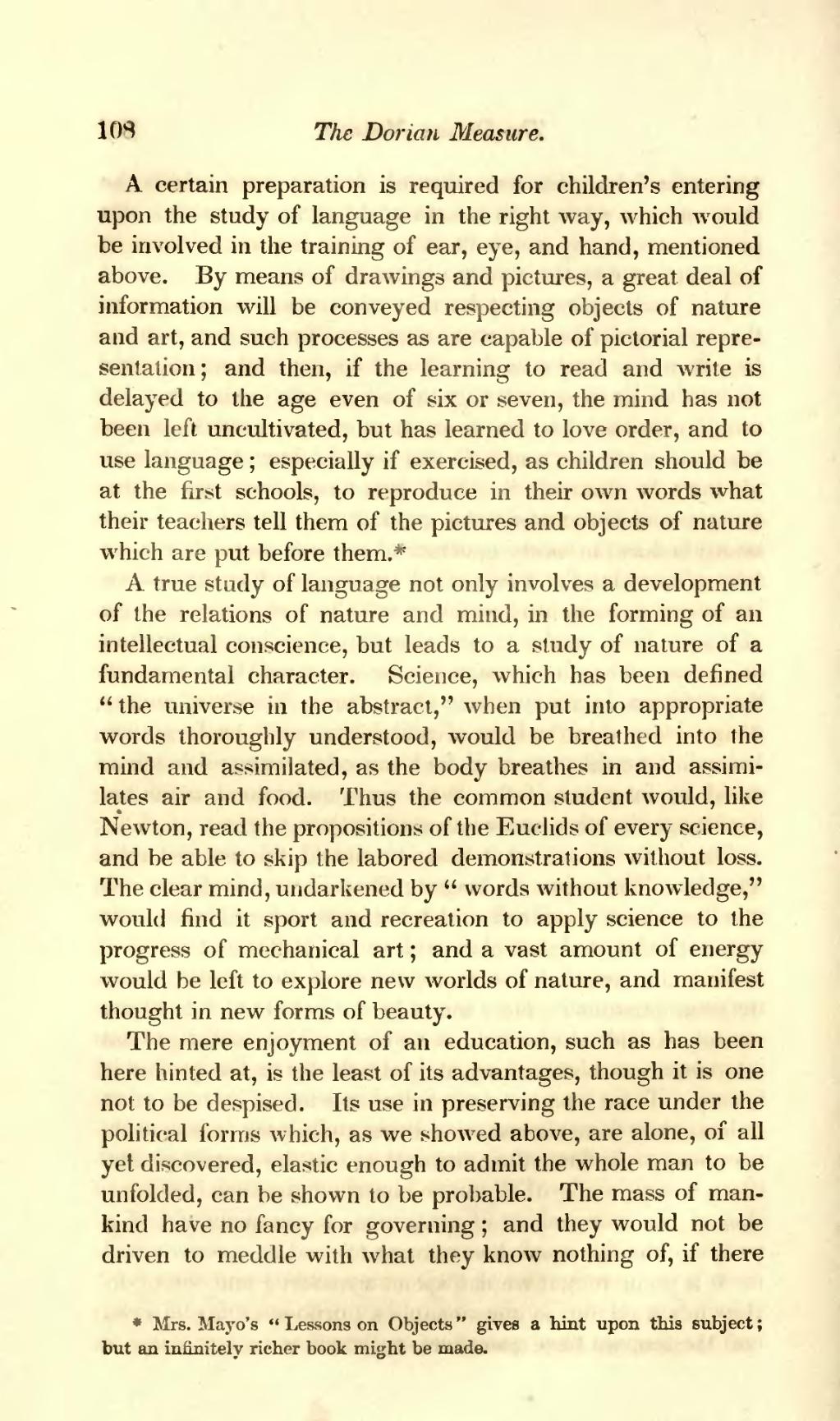A certain preparation is required for children's entering upon the study of language in the right way, which would be involved in the training of ear, eye, and hand, mentioned above. By means of drawings and pictures, a great deal of information will be conveyed respecting objects of nature and art, and such processes as are capable of pictorial representation; and then, if the learning to read and write is delayed to the age even of six or seven, the mind has not been left uncultivated, but has learned to love order, and to use language; especially if exercised, as children should be at the first schools, to reproduce in their own words what their teachers tell them of the pictures and objects of nature which are put before them.[1]
A true study of language not only involves a development of the relations of nature and mind, in the forming of an intellectual conscience, but leads to a study of nature of a fundamental character. Science, which has been defined "the universe in the abstract," when put into appropriate words thoroughly understood, would be breathed into the mind and assimilated, as the body breathes in and assimilates air and food. Thus the common student would, like Newton, read the propositions of the Euclids of every science, and be able to skip the labored demonstrations without loss. The clear mind, undarkened by "words without knowledge," would find it sport and recreation to apply science to the progress of mechanical art; and a vast amount of energy would be left to explore new worlds of nature, and manifest thought in new forms of beauty.
The mere enjoyment of an education, such as has been here hinted at, is the least of its advantages, though it is one not to be despised. Its use in preserving the race under the political forms which, as we showed above, are alone, of all yet discovered, elastic enough to admit the whole man to be unfolded, can be shown to be probable. The mass of mankind have no fancy for governing; and they would not be driven to meddle with what they know nothing of, if there
- ↑ Mrs. Mayo's "Lessons on Objects" gives a hint upon this subject; but an infinitely richer book might be made.
